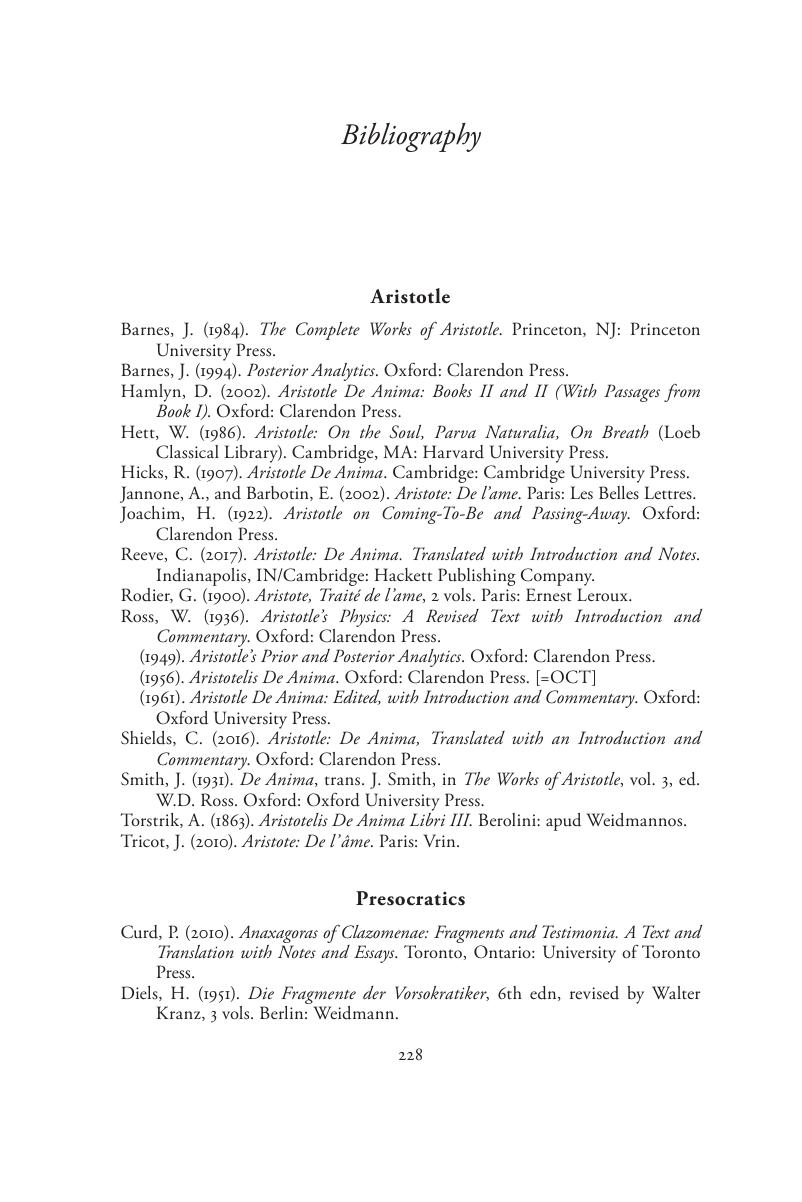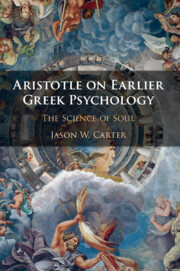Book contents
- Aristotle on Earlier Greek Psychology
- Aristotle on Earlier Greek Psychology
- Copyright page
- Dedication
- Contents
- Acknowledgements
- Abbreviations
- Introduction to Hylomorphic Psychology
- Part I Aristotle’s Methodology of Psychological Inquiry
- Part II Earlier Theories of Psychological Motion
- Part III Earlier Theories of Psychological Cognition
- Part IV Earlier Theories and Two Psychological Puzzles
- Conclusion: Hylomorphic Psychology as a Dualism
- Bibliography
- Index Locorum
- General Index
- References
Bibliography
Published online by Cambridge University Press: 08 March 2019
- Aristotle on Earlier Greek Psychology
- Aristotle on Earlier Greek Psychology
- Copyright page
- Dedication
- Contents
- Acknowledgements
- Abbreviations
- Introduction to Hylomorphic Psychology
- Part I Aristotle’s Methodology of Psychological Inquiry
- Part II Earlier Theories of Psychological Motion
- Part III Earlier Theories of Psychological Cognition
- Part IV Earlier Theories and Two Psychological Puzzles
- Conclusion: Hylomorphic Psychology as a Dualism
- Bibliography
- Index Locorum
- General Index
- References
Summary

- Type
- Chapter
- Information
- Aristotle on Earlier Greek PsychologyThe Science of Soul, pp. 228 - 242Publisher: Cambridge University PressPrint publication year: 2019



